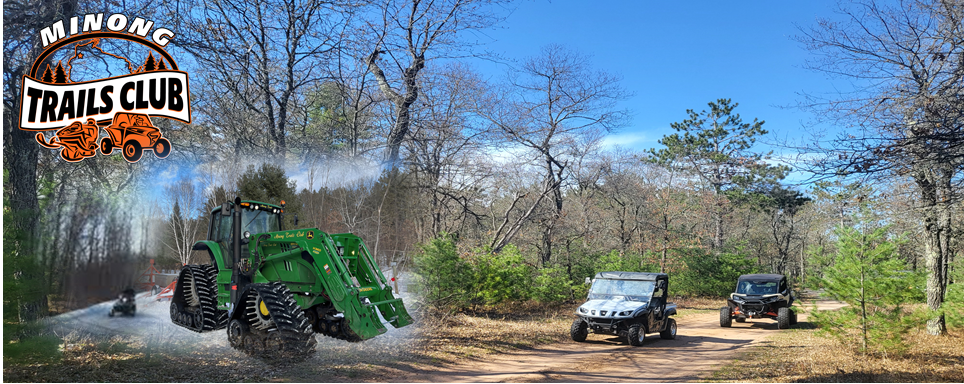Laws applicable to all ATV/UTV use.
Your vehicle must have current registration. Registration is issued by the Wisconsin Department of Natural Resources (DNR), your registration must be up-to-date as there is expiration limits on your registration.
Your vehicle must display registration. Per the rules issued by the DNR as specified in the handbook issued to you by the DNR with your registration. This includes registration stickers on each side of your vehicle and a rear license plate.
You must have safety certification. The operator must hold a valid Safety Certification! This is similar to driver’s education to operate a car or taking the course to get your class “M” to drive a motorcycle. ATV/UTV operator’s must be properly certified to legally ride.
Certain vehicle modifications are barred. If you equip your registered vehicle with prohibited accessories or have modifications to the vehicle that are prohibited your vehicle is illegal for public use (trails or road routes). This includes but not limited to: not having a spark arrestor, noise in excess of 96 decibels and tracks instead of wheels. ATV/UTV’s outfitted with tracks are illegal for public use (trails or road routes) nor do they qualify as snowmobiles; they are for private land use ONLY. For a complete list of disqualifying equipment consult your DNR handbook or contact an authority to insure your vehicle is proper and legal.
You must wear seatbelts. All UTV passengers must have their seatbelts fastened at all times.It is illegal for a passenger to ride in or on any part of a UTV that is not originally designed or intended by the manufacturer to be used bypassengers. It is not legal to operate with passengers in any after-mar-ket seating placed in the cargo area of a UTV.
Lights. Your vehicle must have proper lighting (as specified by DNR; consult handbook) AND your lights must be activated during the hours of darkness or while operating on or along a roadway, even when crossing roads. It is recommended that you leave your lights on at all times for safety.
YOU CANNOT DRINK & DRIVE. No person may operate an ATV/UTV with a blood alcohol concentration (BAC) of .08% or more. In addition, a person can be also be arrested for operating under the influence with a BAC that is under .08%. No person may operate an ATV/UTV with any detectable amount of a restricted controlled substance in their blood.
Where can you ride?
You can operate your ATV/UTV where indicated by a legal authorized trail map, or where routes are marked by legal, officially placed signs which include…
- On established trails. Like our volunteer maintained trails, these are the best recommended place to enjoy your ATV/UTV.
- On legal road routes. Such as many town roads whether dirt, sand, gravel or blacktop. Even some county highways or sections thereof where it is officially allowed.
Where you cannot ride?
- You CANNOT ride on sides of roads or in ditches. If a road or highway is a legal ATV/UTV road-route you ride on the road like a car does over towards the side but never off the road, in the ditch etc.
- On “trails” that are not marked and/or not indicated by a legal official trail map such as old logging roads, fire-roads, state wildlife roads etc. If you see a pathway leading into the forest, it isn’t automatically an ATV/UTV trail!
- In open fields or private property. It may look like wide open free land but this is likely privately owned or can be harmed in ways you do not realize but improper motorized use.
When you cannot ride?
Neither public ATV/UTV or snowmobile operation is freely open year round. There are very necessary restricted seasons that must be observed. Please check the “Trail Status” page to find out if now is a legal time to ride.
- During very high fire danger. Trails are closed and operation of any ATV/UTV on a trail is illegal during very high fire danger. Check the status on the “trail status” page or via the DNR fire danger status. We live in an extreme danger wildfire area! Being mindful of current fire danger status should be a constant thought on every ATV/UTV operator’s mind.
- Spring until Memorial Day weekend. Every year trails are closed during a time from snow melt until the weekend of Memorial Day due to fire danger conditions. This is a complete closure, non-respective to current fire danger status as determined by the DNR.
